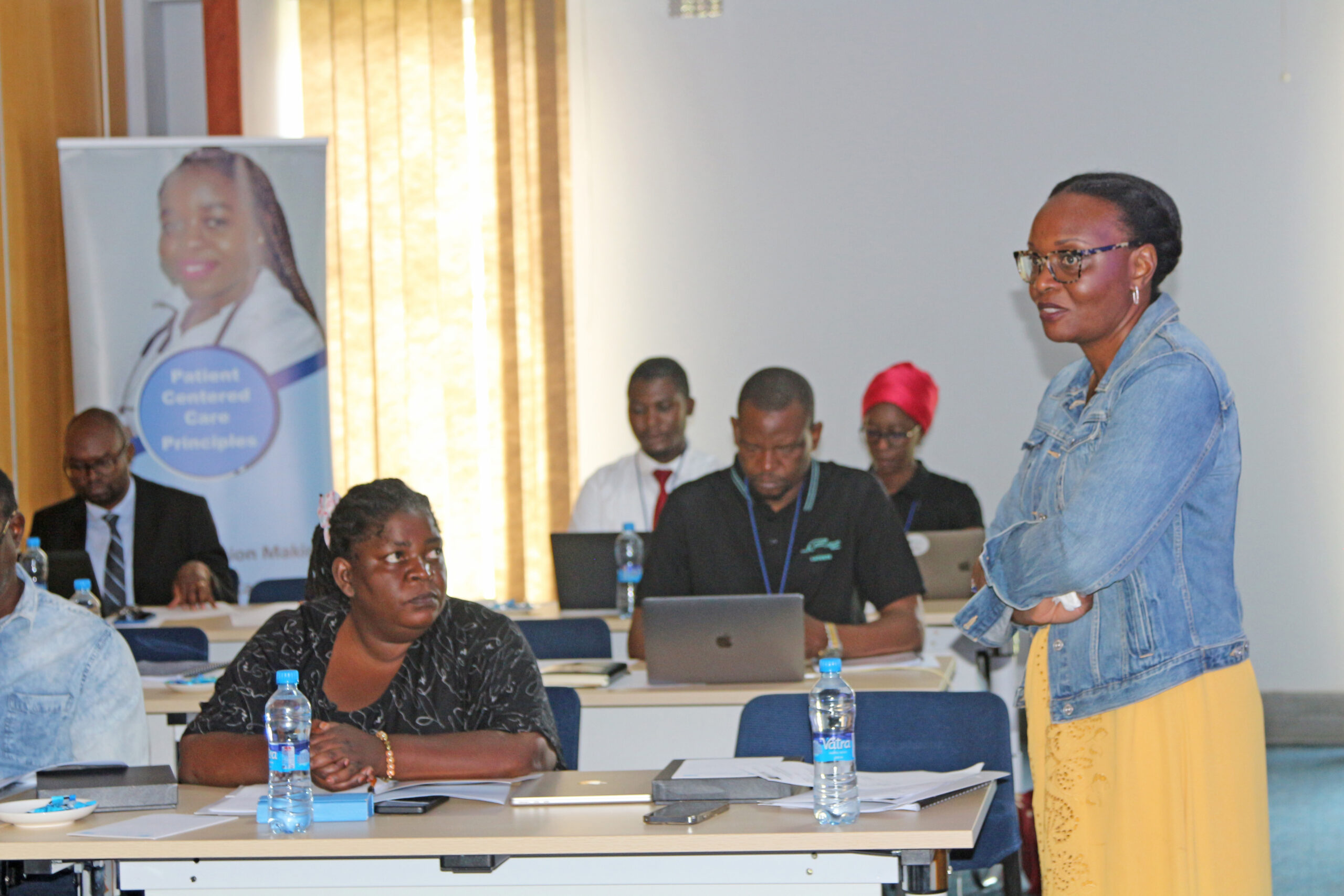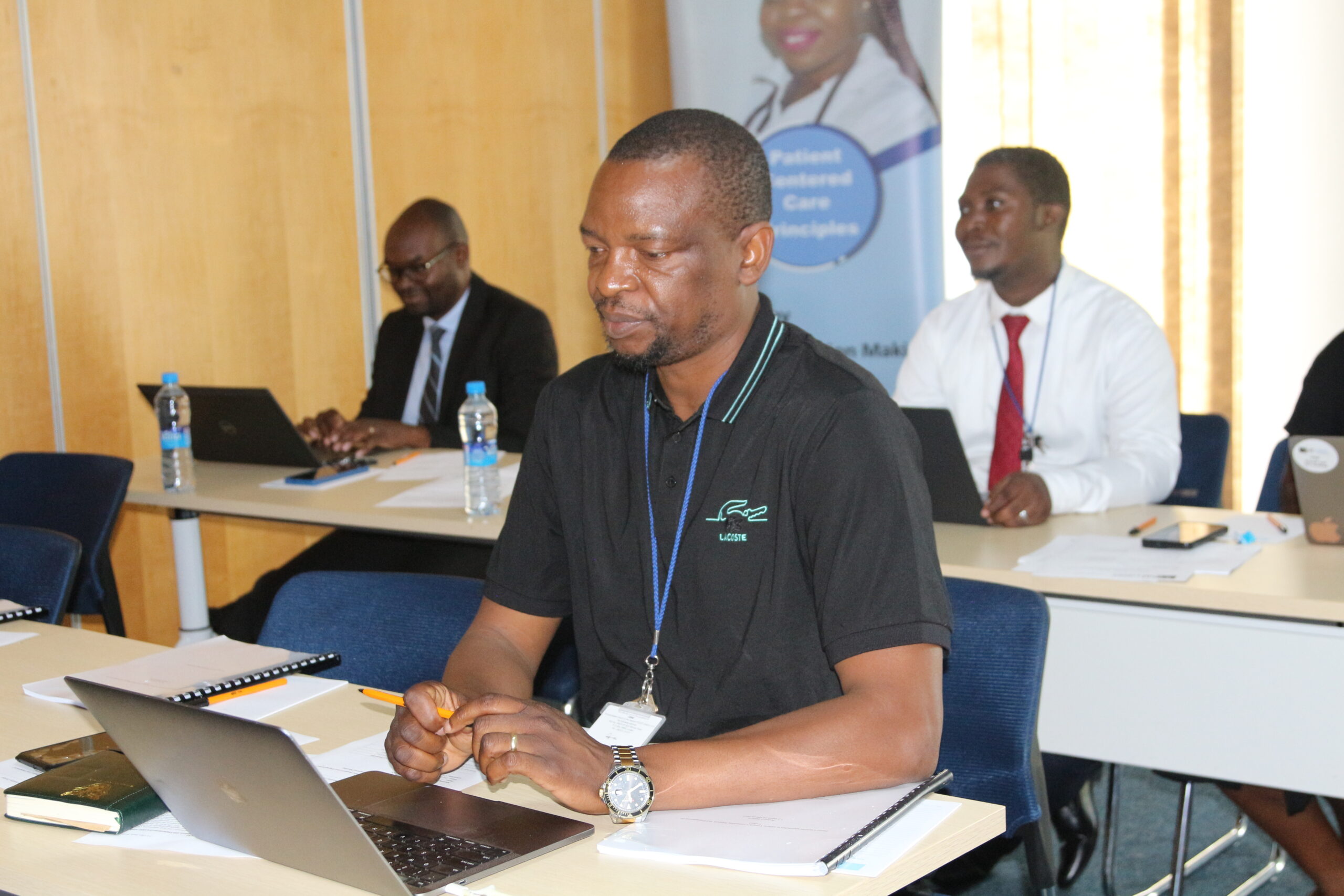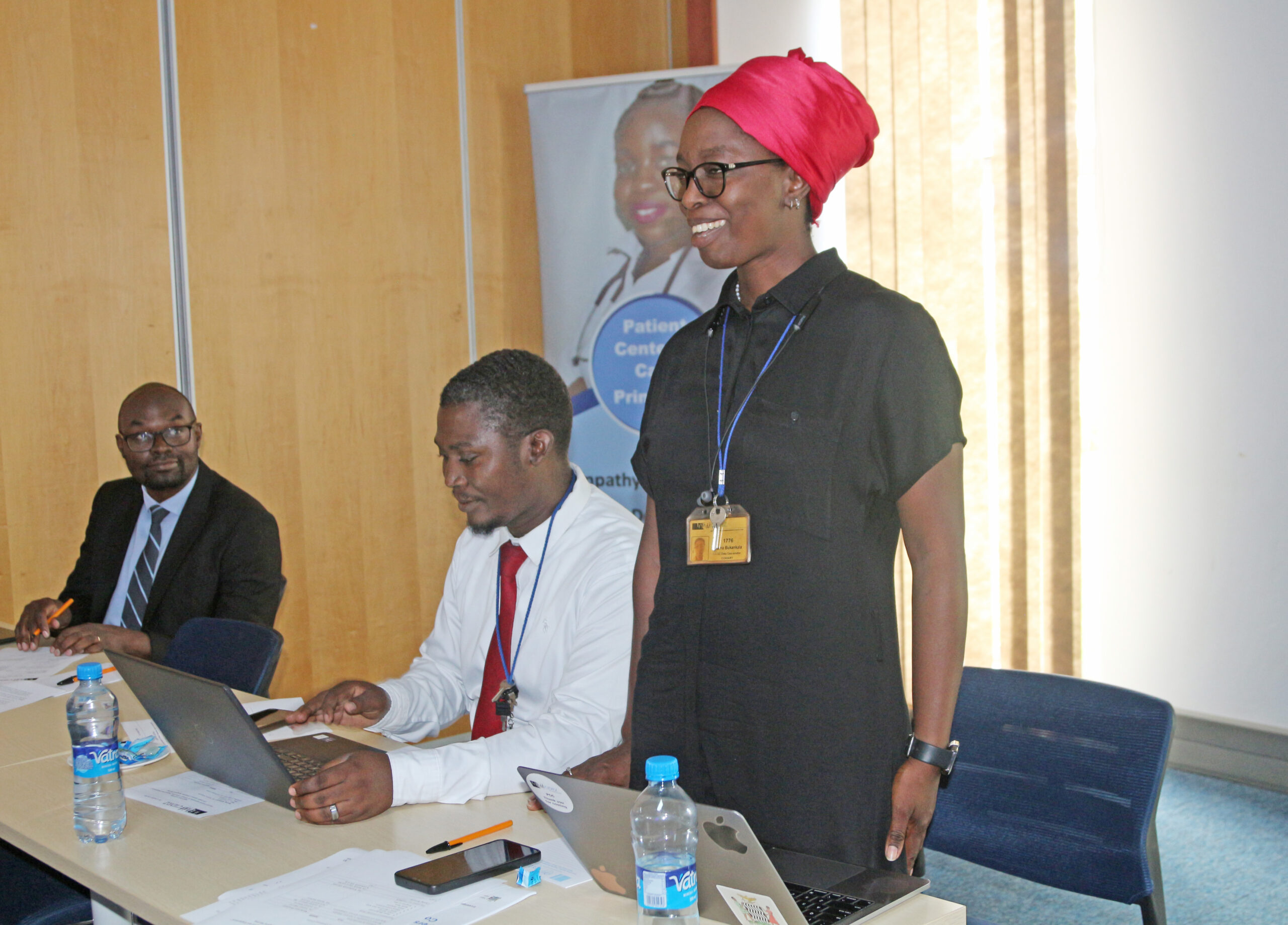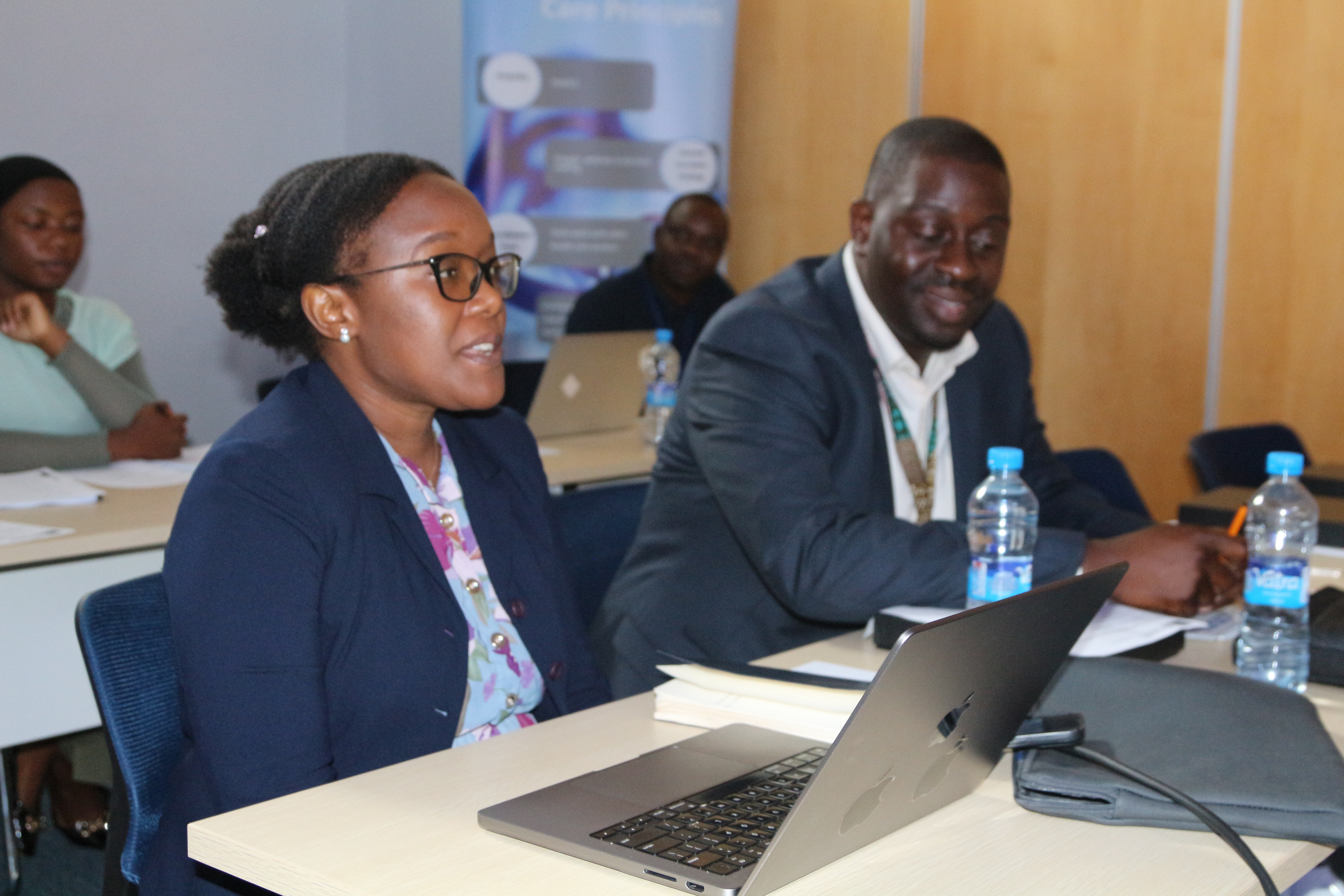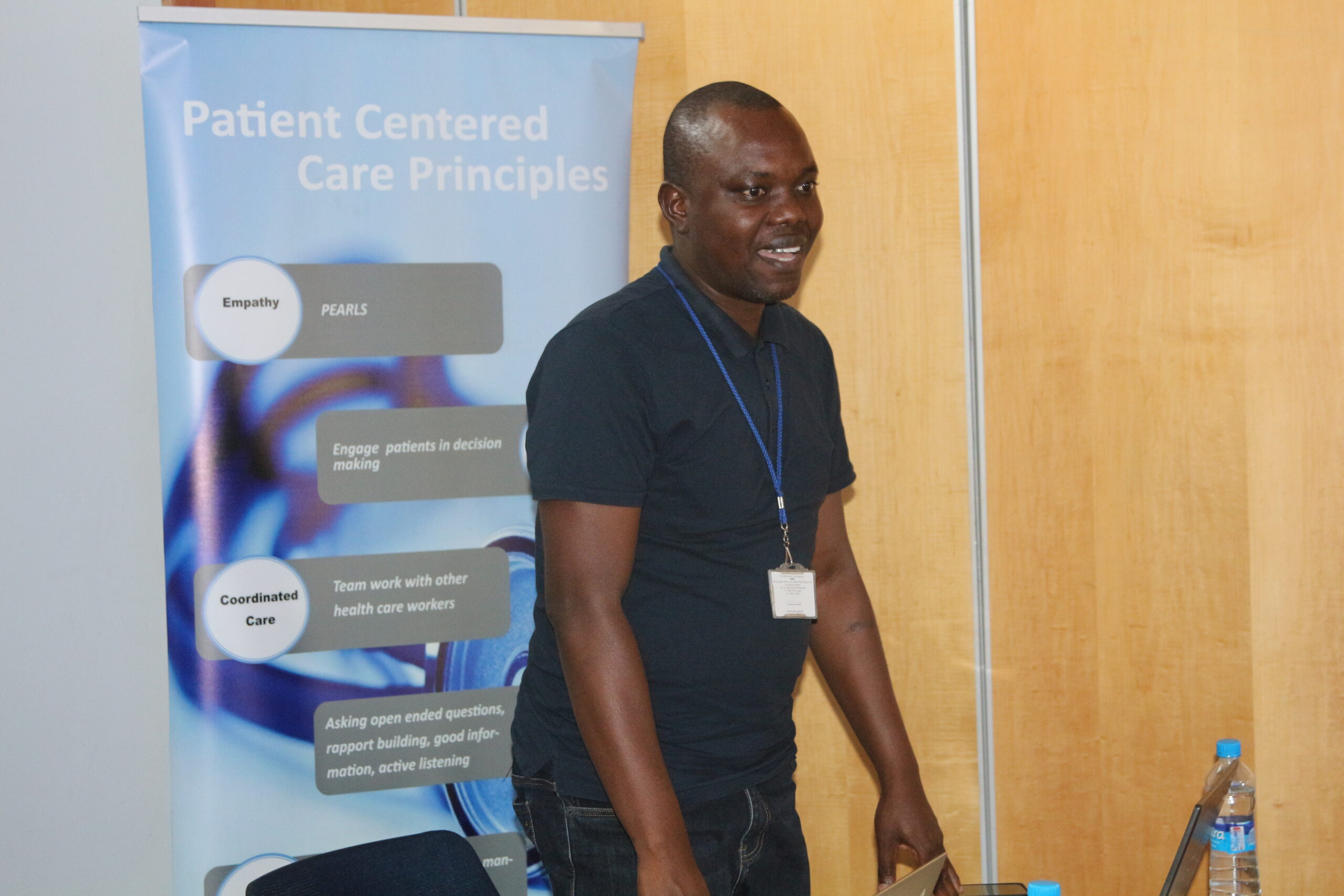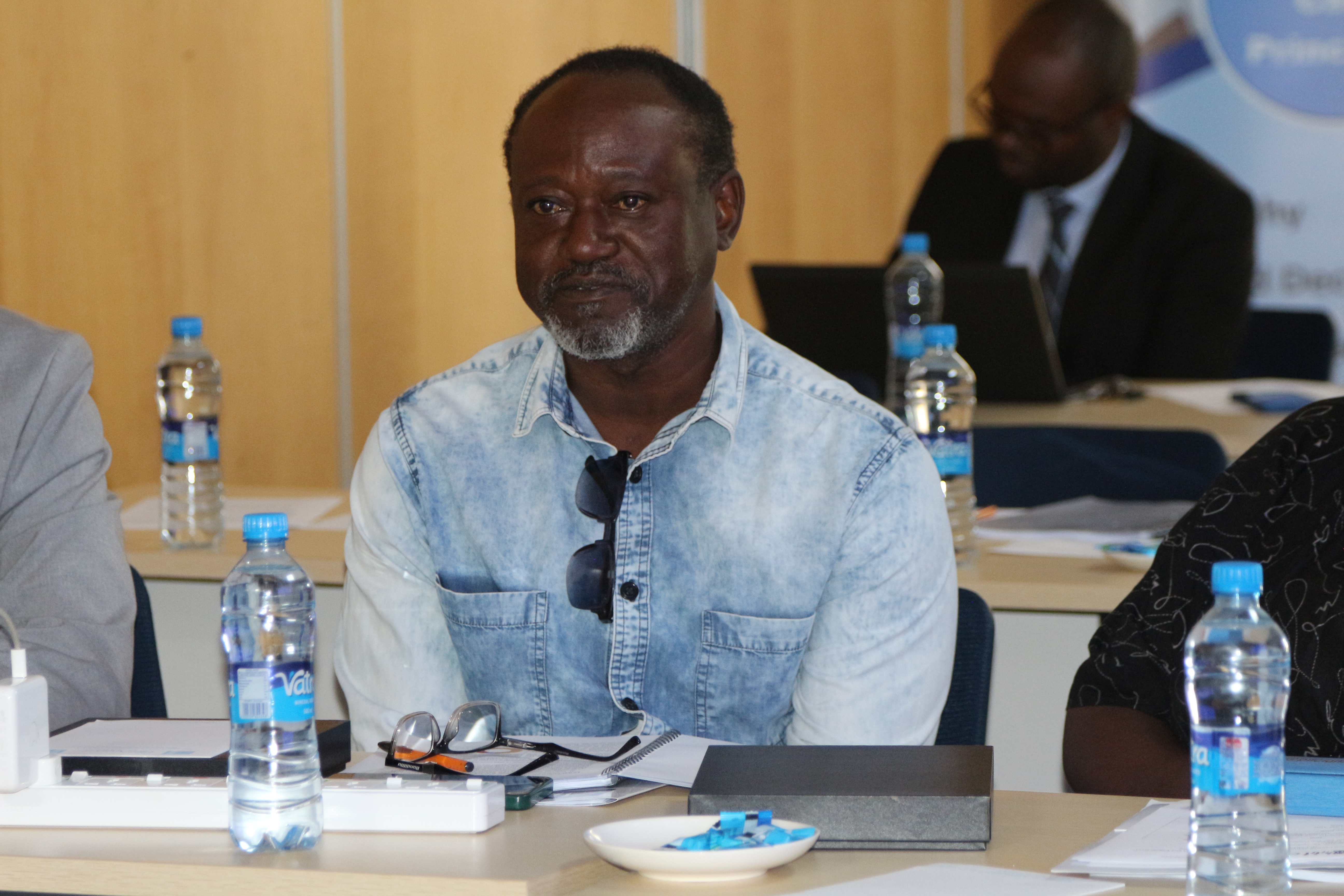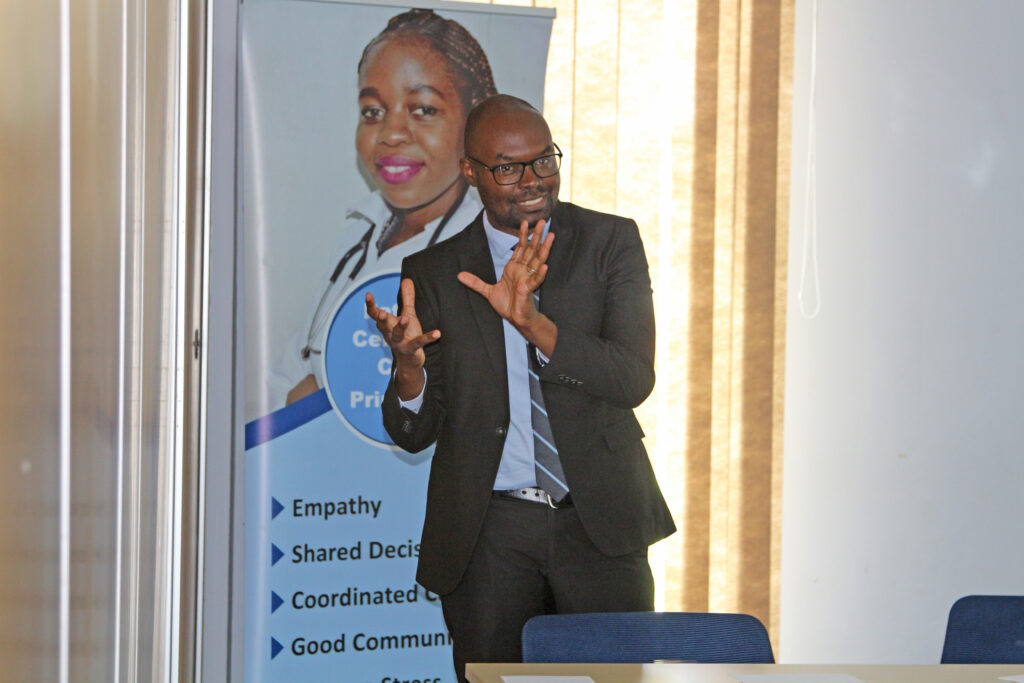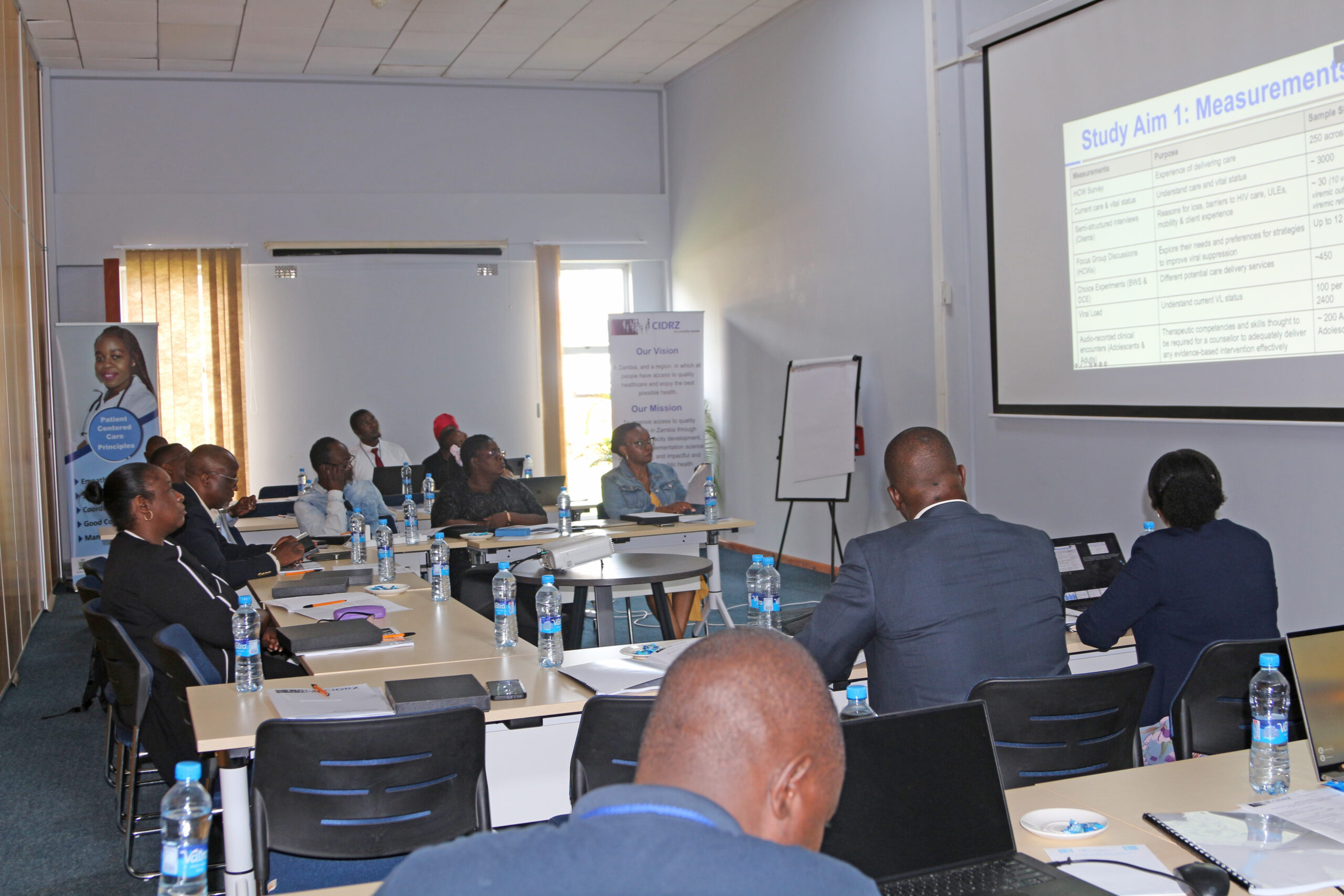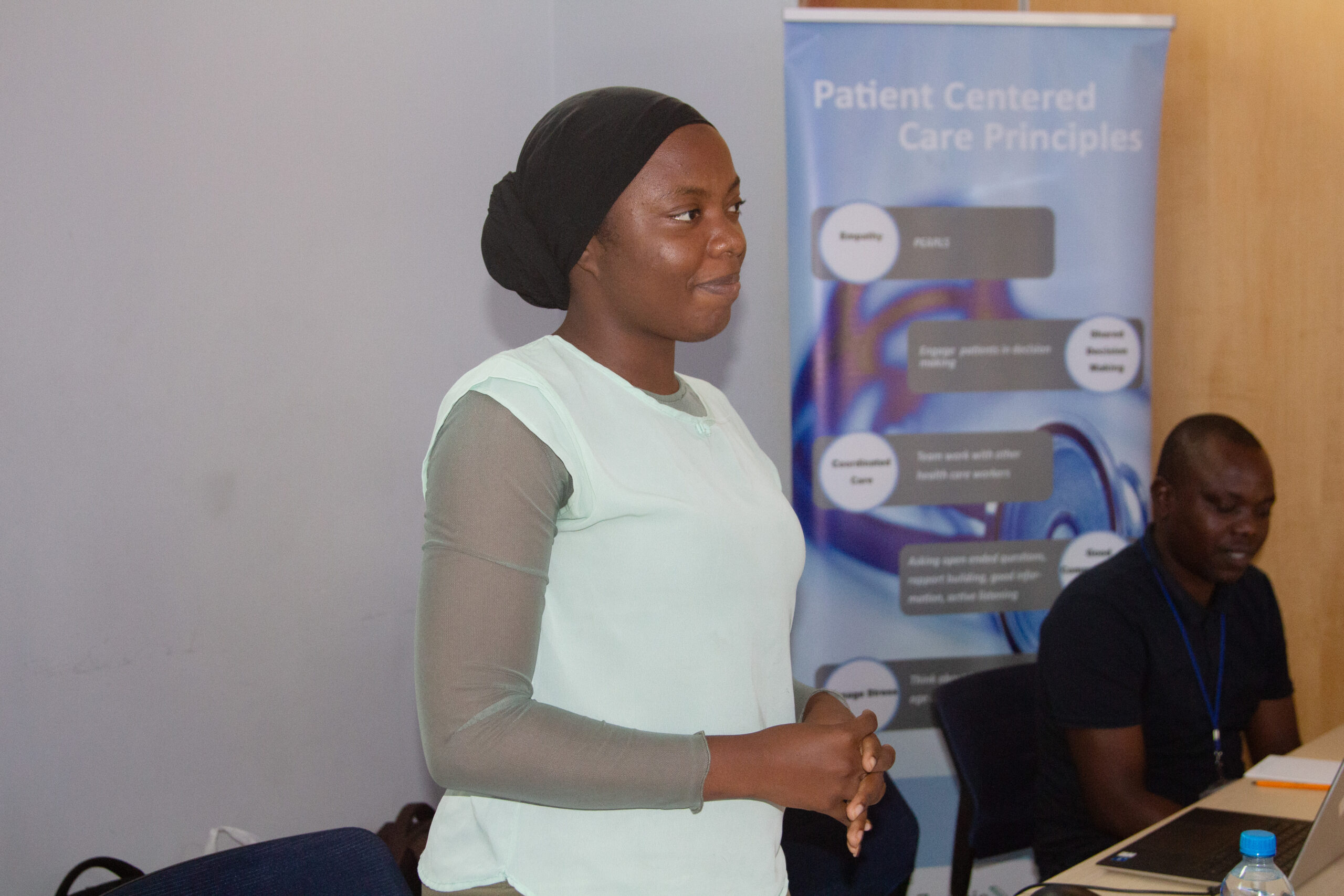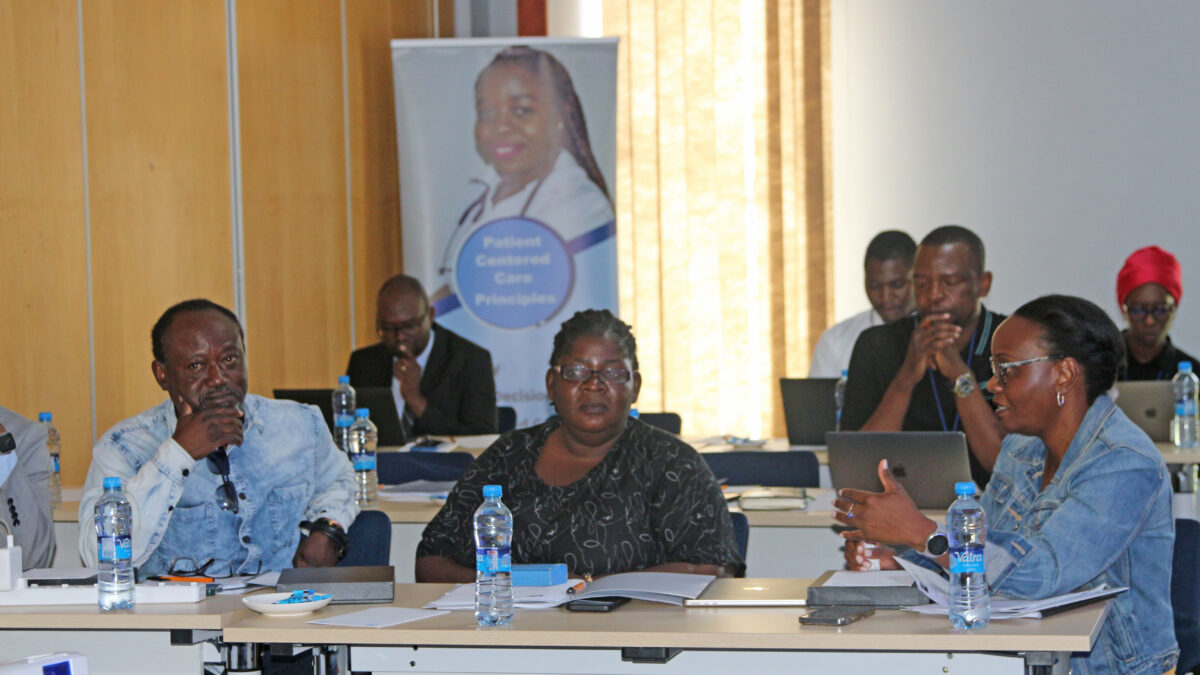
Empowering Peer Leaders for the ZAIMARA Intervention: A Collaborative Training Initiative.
April 8, 2025
CIDRZ, Ministry of Health Host Risk Management Training to Strengthen Laboratory Services.
April 16, 2025Over the past decades, significant progress has been made in increasing access to life-saving treatment for people living with HIV (PLHIV). However, treatment interruptions have adversely affected health outcomes leading to high risk of uncontrolled virus levels (viremia), and increased mortality. Controlling the virus is important for preventing new infections and improving the health and lifespan of people living with HIV (PLWH).
To address this, the Centre for Infectious Disease Research in Zambia (CIDRZ), in collaboration with the Ministry of Health, is implementing a study titled Person-Centred Approaches to Address Viremia: Connection, Rapport, and Engagement (P-CoRE Study) in 24 public health facilities across Lusaka and Central Provinces.
This study is focused on developing and testing a scalable and sustainable person-centred care (PCC) package aimed at addressing uncontrolled viremia in disproportionally affected population, including pregnant and breastfeeding women, children both infants and adolescents, as well as new or returning ART clients.
To guide this effort, the CIDRZ P-CoRE Study Advisory Committee composed of experts drawn from various stakeholders including the Ministry of Health, the National AIDS Council (NAC), and the Network of Zambian People Living with HIV (NZP+), recently hosted its inaugural meeting to discuss study details.
The Study Advisory Committee will play a crucial role in providing expert advice, insights, and recommendations to support the implementation of the P-CoRE study.
Ministry of Health HIV Advisor and P-CORE Study Advisory Committee Interim Chairperson Dr Suilanji Sivile, said the study will help re-engage individuals out of HIV care and help those in care with unsuppressed viral loads achieve viral suppression.
“Ultimately, our goal is to achieve high levels of community viral load suppression. This means ensuring that everyone living with HIV, whether in or out of care achieves and maintains a low viral load. A suppressed community viral load translates into reduced HIV transmission, moving us closer to controlling the HIV epidemic in our country,” he said.
Meanwhile, CIDRZ P-CoRE Co-Principal Investigator Mr Kombatende Sikombe highlighted the need for collaboration to foster success in the implementation of interventions which are centred on the needs of recipients of care.
“Collaboration with the Ministry of Health, recipients of care, and other stakeholders in identifying and developing interventions tailored to meet their needs is key for Zambian priority populations,” he said.
